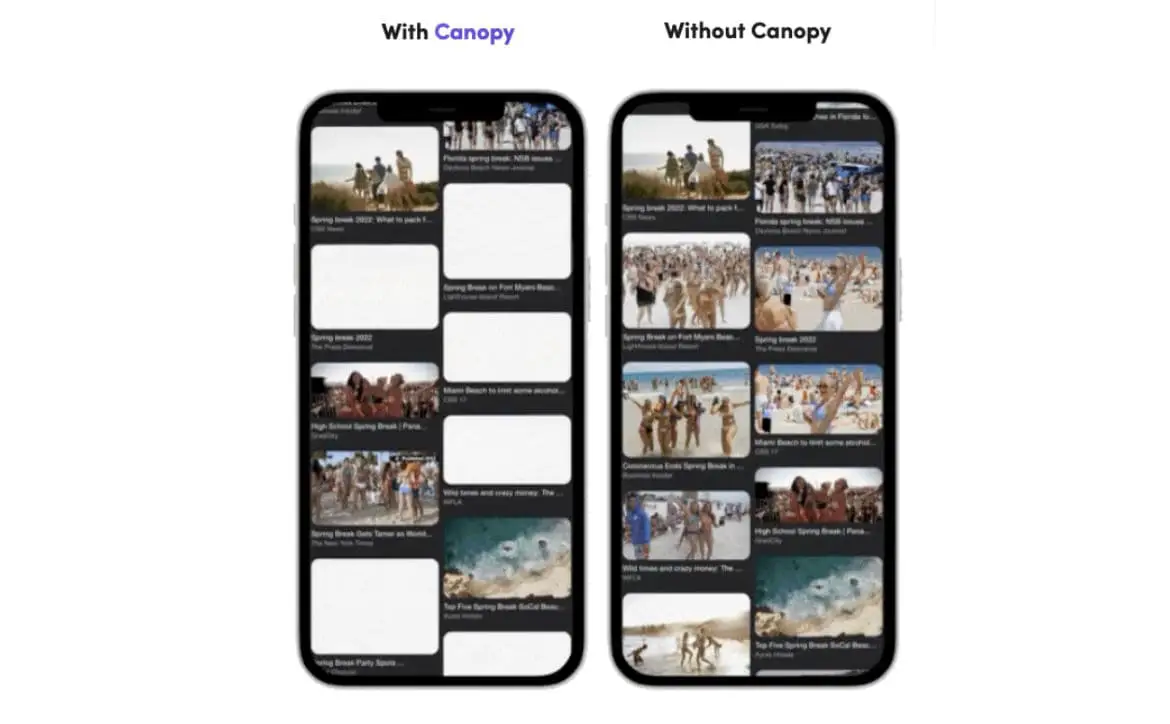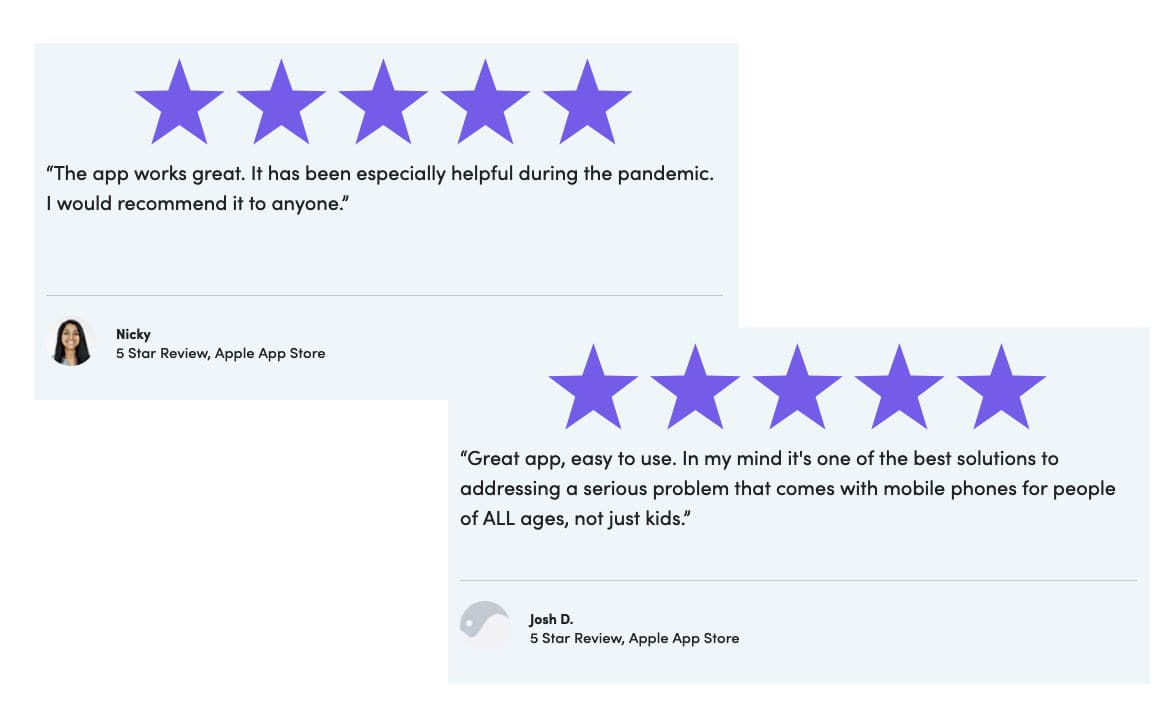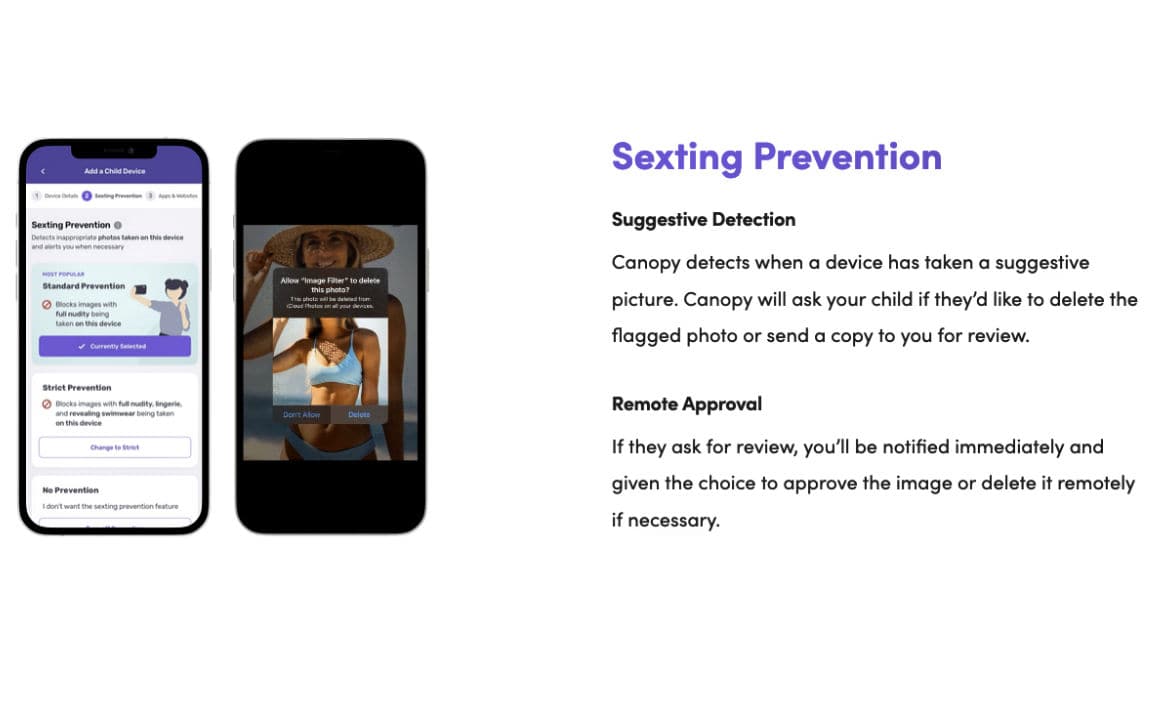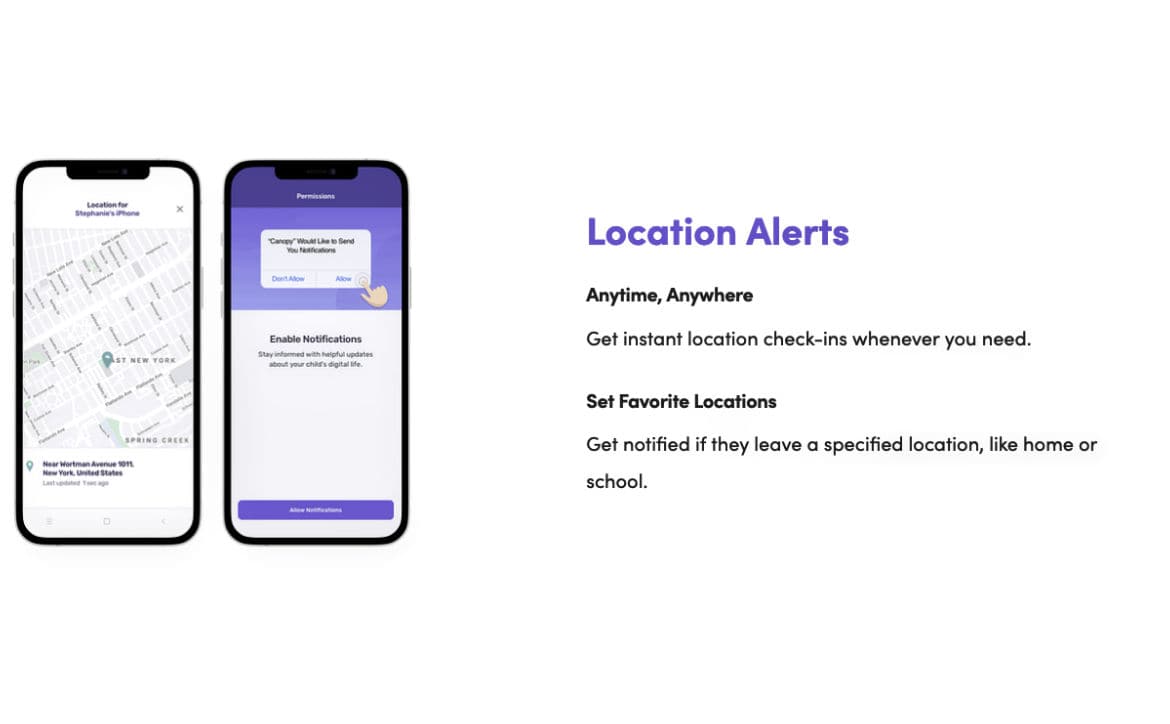J.R.R. Tolkien wrote, “The world has changed. I see it in the water. I feel it in the Earth. I smell it in the air. Much that once was is lost, For none now live who remember it.” Sometimes, that’s what our world seems like. With technological advancements like AI advancing communication and interaction, the world around us grows ever larger. With that growth comes more darkness and danger, and with that comes the need to keep their children safe. Companies like Canopy are trying to assist parents in doing just that.
Estimated reading time: 8 minutes
This article was written in cooperation with Canopy but is not sponsored. Find out more about Canopy on the company’s website at the link below.
Parenting today can feel like navigating a minefield. You never know where a link will actually go, what ad will pop up, what video will autoplay after a harmless cartoon, or who is on the other side of a chatbox.
In fact, 54% of teens have seen adult content online before age 13. Over half (58%) of them have seen it unintentionally.
So what do you do? How do you protect your child from the internet when it’s so vast and unpredictable?
First, you understand exactly what you’re up against. Then, you get help from Canopy–a parental control app built to filter out inappropriate content, prevent children from sexting, and protect them from what you can’t in the digital world.
This article helps you with both.
Table of contents
What Parents Are Up Against: The Dangers of the Internet in 2023
Tech is All Around Us
According to a 2020 survey, the average American household has access to more than ten connected devices.
Children as young as two deftly move between apps on a tablet, wholly engaged and practically deaf to the world. Teens scroll for hours on TikTok if uninterrupted or use the internet to complete homework. Parents, too, are often head down in some app on their phone or on their work computer.
Suffice it to say, tech’s everywhere–and our kids are in the thick of it, more exposed than any generation that’s come before them.
…And It Has Many Dark Corners
With technology comes temptation. Responding to messages from strangers who could be predators? Yes. Cyberbullying? You bet. Visiting a site, they suspect they shouldn’t? It happens.
Earlier, we shared how prevalent exposure to adult content is for children under 13. That’s alarming, given how adult content can influence and shape how early teens engage in sexual activity, normalize unrealistic and violent adult behaviors, and negatively impact body image.
Access to smartphones and other connected devices only exacerbates the issue, making it easier for children to come across harmful material.
The dangers don’t stop there.
Online sexual predators and groomers lurk in the places our children hang out most on the internet. The FBI found that adolescents aged 12-15 are most at risk, accounting for over 50% of all victims.
And beyond predators, 37% of young people between the ages of 12 and 17 have been bullied online.
| 54% of teens have seen adult content online before age 13. | 1/2 of them have seen adult content unintentionally. | 12-15 The age of children most at risk from online sexual predators. | 37% of young people between the ages of 12 and 17 have been bullied online. |
It’s normal to feel overwhelmed by the data and at a loss with how to safeguard your child from it all.
And while it’s unrealistic to take the internet away completely, there are ways to make it a safer place for your child to be.
That’s where tools like Canopy come in.
How Canopy Can Protect Your Child Online
Canopy is a parental control app using next-generation AI and machine learning technology to make the online world safer for families.
Its technology actively protects 2 million devices worldwide and helps US Law Enforcement prevent digital crimes against children.
At a glance, here’s what Canopy does for your family:
- Filters inappropriate content from your and your child’s devices
- Keeps children from accidentally or intentionally removing the app from their device
- Builds healthy habits by limiting screen times
- Allows parents to set custom rules for specific devices so that multi-child households can experience the digital world in an age-appropriate way
- Prevents and flags sexting
- Tracks locations
Let’s dive a little deeper into how Canopy protects your child online.
It Filters Out Inappropriate Content
Despite its dark corners, the internet is an incredible place. It’s full of helpful information, fun experiences, and ways to stay connected with friends and family.
Most parental apps and parental controls only block access to known adult content sites.
Canopy, on the other hand, actually detects and filters out inappropriate content in real-time on your child’s device so that they can remain protected across the internet while still experiencing everything good it has to offer.
That means you never have to worry about an innocent Google search coming up with inappropriate results, a adult content ad popping up on a game your child likes to play, or your child visiting adult content site.

The Canopy app works by scanning, detecting, and blocking explicit content across websites and apps so that no matter where or how your child is accessing the internet, it’s a safe environment for them.
The filtering feature is also customizable. You can decide the level of filtering, even blocking partial nudity on otherwise acceptable sites, such as lingerie pictures on a department store’s website.

It Prevents Sexting from Taking Place
Sexting: the 21st-century nightmare for parents. It’s not just that they’re too young to engage in sexual activity, it’s that they can be exploited and bullied off the back of it.
It’s reported that most online child po********* is self-generated. That means the child takes the photo or video themselves either willingly or due to external pressures. Those pressures could come from a peer or a sexual predator.
When a child sends an inappropriate photo or video, they lose control over what happens to it. The person they send it to could show it to others, publish it on the internet, or use sextortion to manipulate them further.
And it’s not just the sender who is at risk–it’s a crime to be in possession of child po*********. If your child is sent explicit photos of a peer then they could face legal trouble.
Canopy helps prevent sexting by sending alerts when inappropriate photos are received or taken, and requiring parental permission to send the pictures to someone else. That way you can stop this dangerous activity before it goes any further and causes serious harm.

This feature empowers children to make smarter choices in situations that could lead to sextortion, succumbing to pressure, engaging in behavior they may regret, or that may actually endanger them.
It Works With You and Does What You Can’t
You can’t be everywhere at once, managing the experiences of your children from dawn till dusk.
Canopy can. It lives in your child’s phone, operating quietly in the background, monitoring activity, and filtering inappropriate content.
With Canopy, parents can rest assured that their children are being protected even when they cannot directly supervise them.
The app also allows for open communication between parents and children, fostering an atmosphere of trust and understanding.
This dialogue helps children learn about the importance of online safety and the potential consequences of their digital actions.
Plus, Canopy’s tracking features help you know where your child is at all times while its screen time management feature lets you set rules around device use that you don’t physically need to be there to enforce.

It’s a win for parents who want to keep their children safe and secure and a win for children who will never know the dangers their parents protected them against.
You Can Make the Internet a Safer Place for Your Child
If parenting in the digital age is a minefield, then Canopy is the ultimate shield protecting both you and your child from the dangers of the internet and those who use it.
Join the ranks of proactive parents who are using Canopy’s parental control app to filter content, prevent sexting, and be there when they can’t. That way your child can experience everything positive the internet has to offer and be protected from the negative.
What do you think of this service? Is this something you would use to protect your children online? Please share your thoughts on any of the social media pages listed below. You can also comment on our MeWe page by joining the MeWe social network. And subscribe to our RUMBLE channel for more trailers and tech videos!










